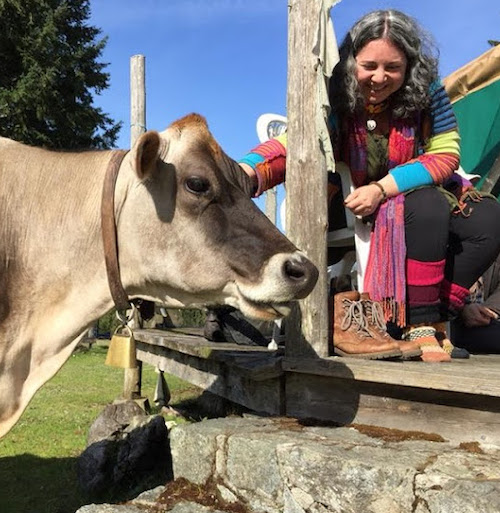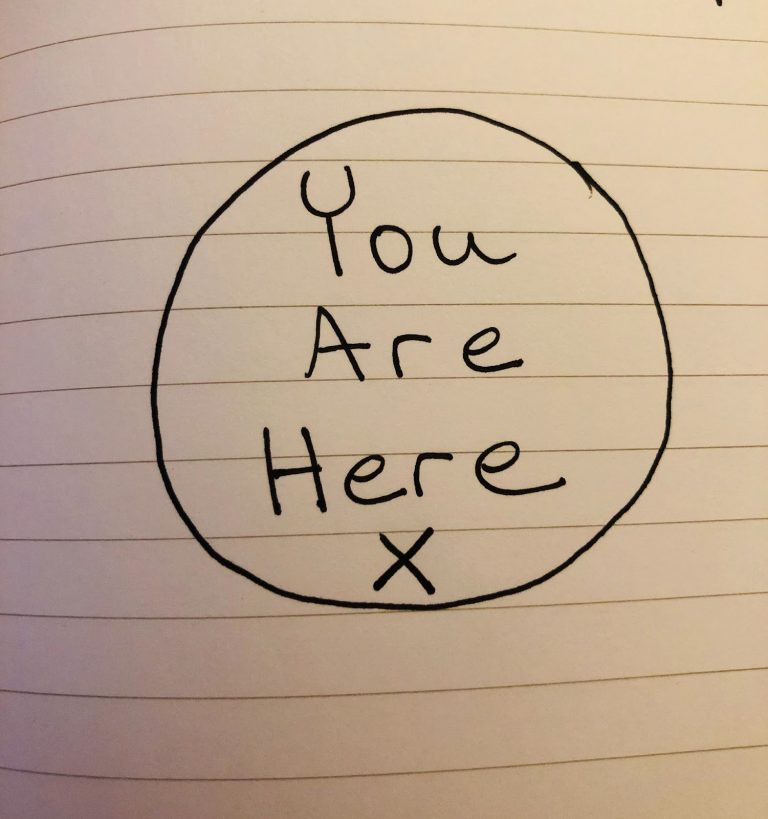
“I raise up my voice — not so I can shout, but so that those without a voice can be heard…we cannot succeed when half of us are held back.” ―Malala Yousafzai
There are many great women in the permaculture movement: they are pioneers like Rosemary Morrow who works with refugees and vulnerable communities; community warriors like Pandora Thomas, founder of Black Permaculture Network; legends like Penny Livingston from the regenerative design institute; writers and practitioners of other arts like Starhawk who helped bringing back good Earth-centered spiritual wisdom and has been an activist all her life or innovators like Looby MacNamara who wrote the first book on People & Permaculture and is currently working in a new one on Cultural emergence; there are activist/warriors like Heather Jo Flores who apart from being an author and embodying permaculture wherever she goes, is currently empowering women through her many online courses; there are teachers of teachers like Rowe Morrow above and the amazing Jude Hobbs; there are editors and business women like Maddy Harland the founder and editor of Permaculture Magazine and the list can be endless if I need to name them all!
Women in permaculture have been starting, co-creating and running ethical businesses, homesteads, community hubs, PDCs and other similar entrepreneurship almost since permaculture saw light in the early 80’s. Many have contributed greatly to the work towards sustainable and regenerative livelihoods, skills and projects, other women’s contributions may be more humble but nonetheless important for the work ahead if we ever want to have a regenerative culture.
Women, however, have been excluded, ignored, silenced or otherwise their voices minimized by big and small attitudes and acts from men and even other women: wisely it was said that there’s no worse enslavement than the one we do to ourselves. Once we are taught to be silent and nice, to please and to ignore these acts and attitudes, we may be the first ones doing it upon ourselves.
The same has happened with people of colour, people with visible or invisible (dis) abilities and people from ages that don’t fall under the classic permaculture poster-child with a shovel in their hands and their sleeves rolled up,
To be fair, I acknowledge the many who have intentionally broken this pattern by inviting not only women but people from the LGTBQ community and from all ethnicities and walks of life to work shoulder-to-shoulder along with them. I have been lucky enough to find them in my way, like my mentor and friend Delvin Solkinson, who teaches in a perfectly balanced dyad along with the amazing Kym Chi.
But I have also experienced the opposite: being silenced and ignored or the frustrating patronizing where I needed to pass through the filtering lenses of men who would “know better” or women who expected me to be what I wasn’t (not, I’m not that poster child of permaculture). Some of my sisters have had it worse: from access to land to rampant abuse of power, stealing of ideas and projects, being banned from groups for speaking up; being told that their permaculture was “woo-woo” because they asked about the social and inner aspects, and so on…even sexual harassment from people who think community means they have rights over everything while the others don’t.
Being who I am, when Heather Jo Flowers started planning the first online all-women-led PDC, I hesitated a bit. I didn’t want to be seen as confrontational or taking sides. And then I realized that when we want to please everybody and don’t take sides, we are putting ourselves in the side of the abuser, and with our silence, we are allowing a culture of one story being told above the many amazing stories coming from the diversity in colours, shapes and sizes from the polyculture that’s us.
I didn’t even made it to the first batch of teachers, who sat in the committee to decide the design of this PDC. It took for others to withdraw so I could get in and demonstrate that I too have something to offer.
But since I joined, the journey has been all worth it: the challenges, the hilarious moments, the inspiring support and stories from the others, the shared vision, even the differences: after all, I’m teaching the Art of Hosting, an evolving toolkit that grabs from both ancient and aboriginal as well as new best practices on how people can work together through the fire, through the unknown, the discomfort, the chaos and messiness and emerge alive on the other side, wiser, fuller, more creative, more humble and fulfilled.
Why to choose a PDC led by women? There are many reasons, and I would love to see a PDC led by people from any gender, the ones I see are included here:
· It tells a different story: while still teaching the core of the PDC, it addresses areas that are usually left out in regular, mainly men-driven PDCs, such as the social and inner aspects of the design and its implementation and maintenance.
· It shows another point of view: at the risk of generalizing, many men involved in permaculture are action-driven and love hands-on projects. While this is great (and there are many opportunities to go hand-on in this PDC, believe me!), it may be too aggressive and even misleading: permaculture is much more than action, there’s a need for observation and listening (to the landscape, the ecosystem, the community) before projects are implemented. Women and many people from the LGTBQ communities tend to have a better understanding of this aspect, something that can benefit all genders.
· It shows that women have a lot to offer and that their understanding and implementation of permaculture has nothing to envy to that of accomplished men in the same field.
· It provides an alternative, more caring and inclusive approach: most PDCs show you a lot and ask you to read Mollison’s book for the rest. If you have a different language from that of the instructor, a different learning style, are older or younger or may require a slower pace, you are automatically marginalized. I have been to PDCs that never touch on design for disaster or creation of ethical livelihoods (just to mention some important missing pieces) and require participants to do things that may be physically, emotionally or cognitively challenging for some: that’s oppression!. Most of the time, the instructor is so busy teaching that rarely has the time to discuss concepts, answer questions or review your design in detail, much less to repeat information. We wanted to offer a self-pace format that allows you to go back and forth, review topics as much as you need, implement and come back with questions and examples, join a global community and have three hours of dedicated 1–1 time!
There may be many more reasons why a PDC like this needed to happen, I’ll let you figure out which ones apply to your case, even if you already have a PCD, this will be worth: I have two PDCs, a yet-not-finished advanced diploma in urban permaculture and one in community services/education, I have been a TA for Jude Hobbs and Starhawk and I’m now completing the EDE (Ecovillage Design Education) and will take the Train of Trainers for EDE next month, and still, I find that I have tons to learn from these amazing women!
Curious about the program and its benefits?
· Register any time, but early bird is available only till April 1st!
· Complete it at your own pace, you’ll have up to a year to do your design.
· Join a global community of eager learners from all genres and ethnicities and learn from a diverse group
· 40+ extra hours beyond the regular PDC curriculum
· The opportunity to re-visit concepts as much as you need
· Assess your progress after you complete each block of modules, so you don’t get to the design step all lost and confused
· Three extra hours of 1–1 support & feedback with one of our faculty members
· Ask for extra support for designing your ethical and regenerative livelihood and discount in my upcoming programs related to ethical entrepreneurship and the pathfinder
· Lifetime access to the materials
· The opportunity to be a student in the first-ever all-women led PDC and provide input and feedback to help us to co-create a better program in the future
· Discounts in advanced programs (coming soon!)
Still in doubt? Check it out!



